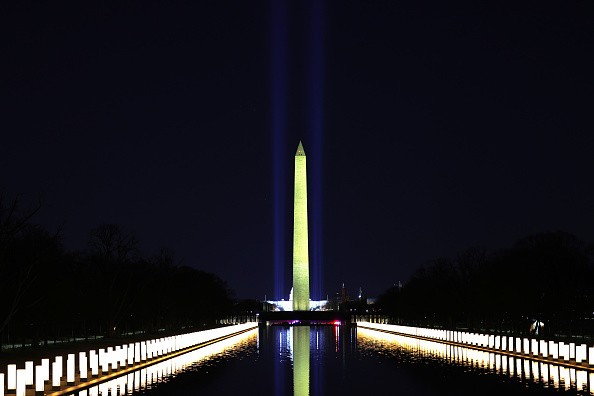
Livestream for Inauguration is being set with security measures when a mob of rioters overcame barriers and burst into the Capitol.
Some of them boasted about their live streaming activities as thousands of followers watched in real-time.
READ: Stimulus Bill Includes $25 Billion in Rental Assistance. Are You Qualified? Here's How to Apply
After the Capitol's attack and in anticipation of possible protests at the Inauguration of President-elect Joe Biden, several Livestream networks are now taking measures to clamp down on such broadcasts.
Via Inauguration Day, the Facebook company will block "the creation of any new Facebook events" that are near the White House, US Capitol, and any state capitol buildings.
"We are monitoring for signals of violence or other threats both in Washington, DC and across all 50 states," Facebook said "In the lead up to Inauguration Day, we have implemented a series of additional measures in Livestream to continue preventing attempts to use our services for violence."
YouTube says it has deleted several videos shot during the Capitol attack that seemed to cause violence or display guns carried by Capitol rioters. The firm told CNN that Livestreams and other posts that violate its hate, abuse, and election integrity guidelines would continue to be deleted.
And after the Capitol attack, DLive, a Livestream service popular with gamers, reported that it had suspended seven of its users on January 6 for incitement to violence and illegal activities. Since then, DLive has announced additional steps and said it is blocking all live streams on Inauguration Day from the Washington, DC, area.
ALSO READ: Tearful Pelosi: Congress Members Who Were Accomplices to Capitol Siege May Be Prosecuted
Law enforcement official Pete Eliadis, and the founder of Intelligence Consulting Partners, said the Capitol Livestreams offered a forum to spread hatred while enabling those who film them to pander to their followers.
"It's being watched by state actors all over the world. ... If I'm a bad actor, I know the layout of the Capitol ... I can see the defenses, the police response and I can counter that now," he told CNN. "That's a huge challenge on a larger scale platform."
This provides more motivation for the "influencers" to view the narrative through their own eyes, contributing to a dangerous type of control that "enhances the ideology and the movement," said Eliadis.
There are their influencers on all streaming platforms who associate fame with wealth. Cindy Otis, vice president of research at Alethea Group, which monitors misinformation and social media exploitation, said that to stand out, some users indulge in a degree of acting-almost like they're performing in their movies-to gain money.
And the majority of users will flock to sites where their content can be monetized, Otis said. That can mean smaller, fringe outlets for radicals with less stringent content policies and market themselves as homes for "uncensored" expression.
READ MORE: Man With Unauthorized Inauguration Credentials and Loaded Handgun Arrested by US Capitol Police
Extremist ideologies are finding new homes as platforms clamp down on hate speech and incendiary content, says Megan Squire, a professor at Elon University in North Carolina and an expert on online extremism.
Also, on smaller sites like DLive, only a minority of users are made up of extremists.
DLive claims the vast majority of its users, with fewer than 10 percent talking about current affairs or politics, concentrate on gaming. And Squire said that some DLive gamers use the site's group chats to celebrate the Capitol rioters' suspension and share their outrage at being associated with White supremacists.
© 2026 HNGN, All rights reserved. Do not reproduce without permission.








